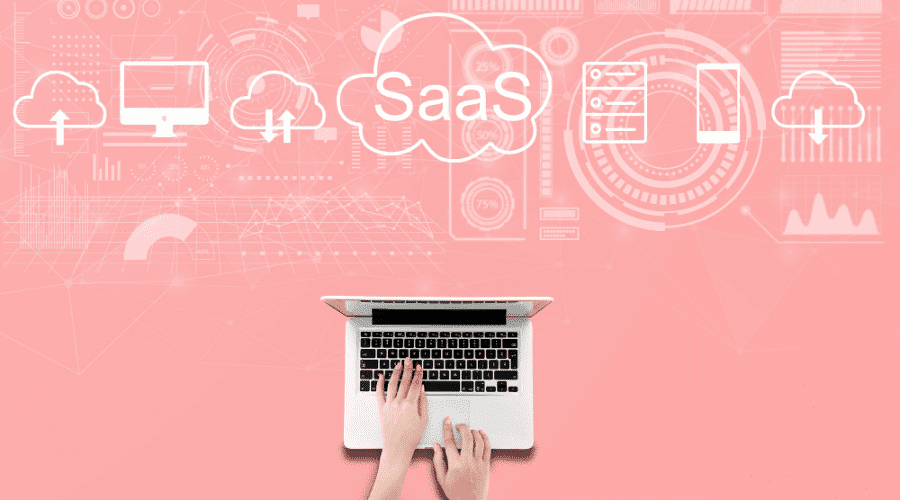
SaaS 2.O: How AI in SaaS Bringing Revolution to Businesses?
We all are aware of the dominance of SaaS platforms in modern business practices. So it’s not unfair to say that it has revolutionized the way companies execute different activities.
The SaaS model provides an organization with numerous advantages that couldn’t possibly get in the manual process. That is the major reason driving the SaaS industry to the next level. According to Explodingtopics, the SaaS market is worth over $170 billion. And the industry has grown in size by 500% over the past seven years.
The SaaS industry has witnessed interesting and rapid growth in terms of implementation; however, its evolution is even more interesting.
Evolution Of SaaS
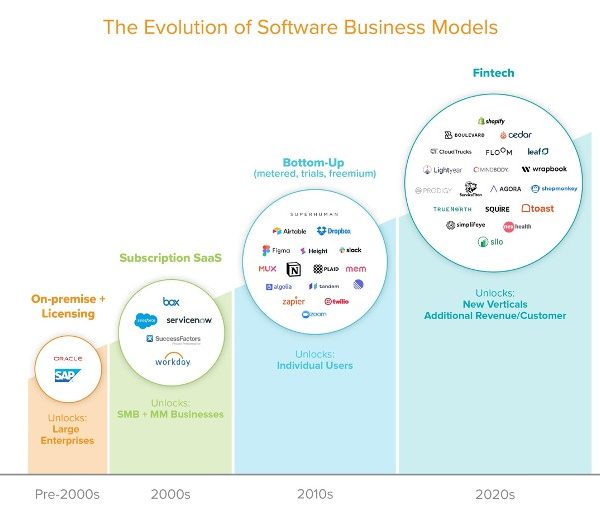
Image(Source)
In the 1960s, computing technology and software development evolved promptly. However, it was still too costly for numerous companies. That’s where the SaaS element came into existence. MIT developed the first compatible time-sharing system; however, it can only be called the beginning form of SaaS.
The era of the 1970s and 1980s was when hardware computer technology was proliferating. Businesses were moving towards individualized computer systems instead of big processors used by various persons. The reason behind this was the cost-friendliness of new hardware technology.
Then, the early cloud computing stage, “LAN,” was introduced. Companies constructed their local version of time-sharing. Local machines hosted applications, and the data was saved on a centralized server. It required a timely data backup, hardware maintenance, installation and update of the system, etc.
The invention of the world wide web(WWW) proved to be a game-changer for SaaS. Various businesses transitioned their applications into cloud-based solutions. And due to its least expenses, numerous service providers moved to a SaaS model for their business processes to deliver services at lower costs.
In 1995, some SaaS sites were introduced. In 1999, SalesForce was launched. It was the first cloud-native platform. Then, there was no turning back of SaaS models. Oracle, Google, Microsoft, IBM, SAP, and many other organizations introduced their SaaS products for different purposes.
How Is AI in SaaS Industry Changing its Face?
Artificial intelligence is a prominent subject of discussion for tech-savvies. It’s a beneficial invention streamlining various activities, reducing errors, and eliminating repetitive tasks; so that the process takes less time to complete and productivity gets enhanced.
AI is evolving numerous industries such as healthcare, retail, marketing, finance, logistics, etc. In addition, It has also been innovating various tech inventions over the past decade. AI enhances information technology, cybersecurity, and software development processes. And business process automation is also dominating different business functions, so computer programs handle the entire process by commanding the particular robot/system, and the humans can focus on other essential tasks.
As artificial intelligence’s dominance involves different industries and business processes, SaaS is also no exception in it.
AI can innovate the SaaS industry’s various processes, yet here are some classified functions and benefits driven by AI in modern practices.
Personalization
In the modern world, when customers are looking for some product/service to purchase, they do not just consider the typical consumer elements(quantity, quality, and price). Instead, they also tend to focus on how the company treats them. They want businesses to consider them part of their process, not just customers. So, the organizations have to deliver the best customer experience to maintain their existence in the market.
AI in SaaS allows personalization and enables big data processing. Artificial intelligence and natural language processing(NLP) can be helpful for SaaS providers to provide customers with a personalized experience based on their previous interactions on the site or app. It configures the interface in such a way that fulfills users’ desires.
Companies also use AI to analyze a tremendous amount of customers’ data and classify it to make more personalized consumer segments. And machine learning helps to gain insights from the collected data to find trends. So, the company can derive necessary conclusions and build strategies accordingly.
Additionally, a personalized user experience provides potential customers with a sense of attraction toward the brand/product. So, it also improves the sales revenue of the company.
Predictive Analysis
Change is the only constant in the modern world. As the technology continues to evolve, the consumers want more and more advanced features in different products. So, businesses need to analyze the future needs of technology to stay unique in terms of functionalities provided in the products. Here comes the part of predictive analysis.
Predictive analysis is a method by which companies can predict the future by reviewing past patterns. It is mainly focused on the statistical data collected in the past and involves analytical techniques like data mining, statistical modeling, etc. It gives the best assessment of what is likely to happen in the future so that organizations can identify future trends and make changes in their products/services accordingly.
Predictive analysis is also useful to predict the scenarios where users start to disengage. Additionally, it is also helpful to boost the sales revenue and close rates by indicating what customers are most likely to buy.
Product Search
Customers search for many things on google or a particular company’s site. They search for products for different purposes. So, the businesses need to identify the intent behind their search to know what they are looking for exactly. It provides a more personalized user experience, and users can find the most suitable products with the least effort.
Artificial intelligence helps organizations in identifying the users’ intent behind a search on the site/app. It is based on their past behaviors and search history. For instance, if a user searches for a bike, then what is the purpose behind his search? Is he looking for a new bike or bike parts?
This process helps to improve the click-through rates and conversion rates. It also allows brands to determine their product rankings.
Also read : SaaS Trends – Every Company Should Follow
Automation
Company employees often have to suffer from tedious processes and repetitive tasks. So, it’s natural that productivity and enthusiasm in the last task cannot match the first task/operation level. So, automation technology can help here to eliminate manual tasks and provide the same results in every operation.
SaaS companies can utilize AI to eliminate repetitive tasks and errors to streamline their processes. Automation technology handles manual operations and makes them done quicker. So, the organizations can reduce costs and eliminate the need for extra resources.
The revolutionary invention of automation technology is chatbots, which deliver quick responses to customers. It keeps the costumes engaged with the site/app and solves their queries with the knowledge database. This way, organizations create a feeling in customers’ minds that they are available for customers 24×7.
Cloud Security
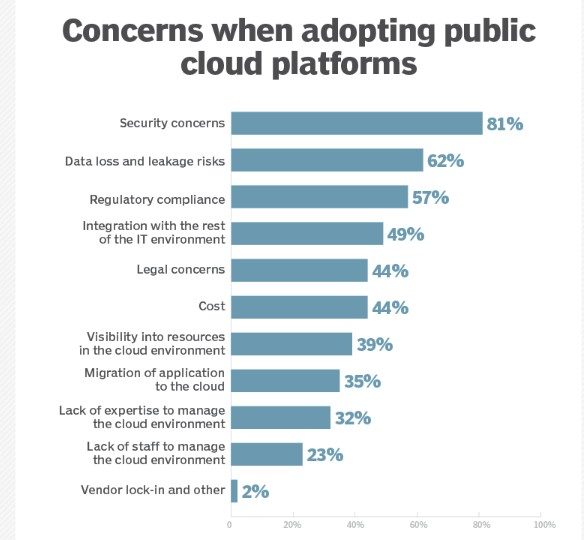
Image(Source)
The above image clearly shows the top most common concern of users when choosing a cloud platform is security. Private data can be at risk in public cloud platforms. However, automation technology can help SaaS companies to get alerts about data breaches.
The traditional security measures are ineffective and obsolete. AI can be programmed to detect data threats and deliver alerts. A well-programmed system can ensure security 24×7, and it doesn’t require human assistance. Recently, Oracle included AI and ML in their cloud security services to facilitate automated threat detection.
Top SaaS Providers Using AI
As artificial intelligence is evolving various industries and business practices. Numerous SaaS providers are now adopting it in their products/services. Some of the ideal examples are mentioned below to consider:
1. Google

We all know the name Google as our numerous daily tasks depend on its products’ assistance. Google’s voice assistant is the most famous AI service among its other services/products. The past years have shown everyone how Google is interested in building smarter technology for its users.
2. Amazon

Amazon uses AI and ML(Machine Learning) across all its SaaS products and services, along with its eCommerce platform. Its Alexa is a prominent name among other voice assistants. Amazon not just only enhanced the customer experience but also leveraged AI for other innovating things. Like running a cashier-less grocery store, predicting the number of buyers, and improving security levels of SaaS.
3. Microsoft

Microsoft is another tech giant on the list using AI in its SaaS products. Microsoft 365 is integrated with the company’s AI Azure. It helps to integrate natural language interactions across its different products. Microsoft also provides AI services to businesses to streamline their work.
4. HubSpot

HubSpot is a prominent name among marketers. It uses AI to streamline the sales and marketing processes of organizations. HubSpot manages data cleanliness, content optimization, and sales enablement tasks with AI to provide users with a great experience.
5. Grammarly

Using the AI-based language detection and enhancement technology, Grammarly provides writing suggestions to users and eliminates grammatical mistakes, punctuation errors, and other issues from the text. It leverages deep learning and natural language processing technology.
6. Adobe
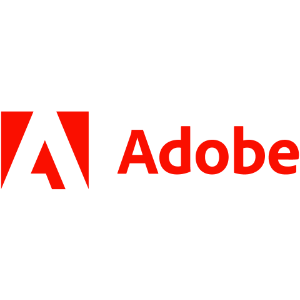
One of the most creative companies in the world, Adobe also uses artificial intelligence to enhance its SaaS model. Adobe AI records the customer data along with their interactions with the platform, and then predictive attributes take place. And the photo editing tools of Adobe recognize images and suggests necessary changes.
7. SurveyMonkey
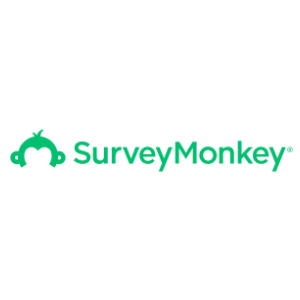
AI-driven software SurveyMonkey is revolutionizing the survey software industry. Users can know how their surveys will perform and how long it will take to complete them before sending them to others. Machine learning and natural language processing are significant reasons behind its excellent user experience.
8. Slack
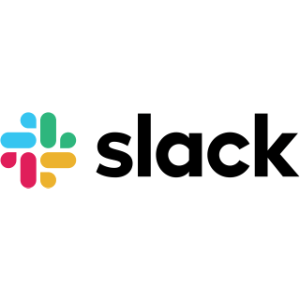
One of the fastest-growing SaaS businesses in the world, Slack helps people to find others in the industry and the knowledge they need. It helps to build online communities. AI sorts out thousands of messages, refines search queries as search engines do, and provides suggestions.
9. Salesforce
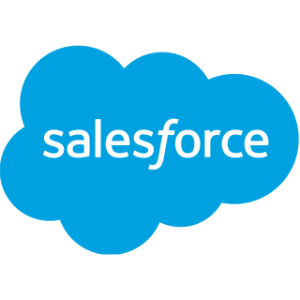
Salesforce Einstein is the AI engine integrated into the Salesforce customer success platform. It provides intelligent data analysis and predictive forecasts on customer behavior. It also provides AI services to software companies to improve their products or services.
10. GitHub
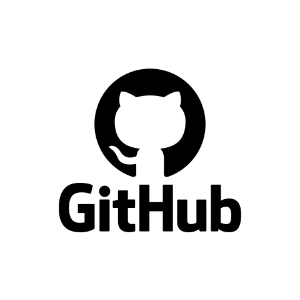
GitHub uses its own AI tool called Copilot. It’s an excellent tool for developers to complete their tasks in less time with higher productivity. It fine-tunes various codex engines to do the coding under one hood. When typing one code, Copilot autocompletes the code with the most accurate completions it can find.
Future Of SaaS
More and more innovations through AI clear one thing that it will influence the future of SaaS. But there are also some trends that can determine the SaaS companies’ existence.
1. Vertical SaaS
Vertical SaaS solutions are tailored for a business and include specific features for that particular industry. Horizontal SaaS provides solutions for all businesses and industries, while the vertical focus on a certain industry/niche.
Its objective is to meet a specific industry’s unique requirements and improve productivity. Logistics and retail software and health business intelligence software are ideal examples of vertical SaaS.
2. Mobile-Centric Approach
According to CNBC, nearly 72.6% of total internet users are expected to access it through their smartphones. As mobile users are massive in numbers, SaaS companies also have to provide a better user experience in their mobile versions.
Mobiles are the best solution to run any application over the internet regardless of the location. So, it is strongly recommended that SaaS companies improve user experiences in their mobile applications for better retention.
3. Analytics
Data analytics have become an essential thing for businesses to determine necessary decisions. As a result, organizations tend to emphasize data-driven decisions and conclusions.
Due to the higher demand for analytics and reports, SaaS providers should add data analyzing and reporting features to their products/services. Valuable insights help the business to make essential decisions and overall decreases the churn rate of SaaS providers.
Summarizing
SaaS providers are now becoming more user-centric, so the industry is growing unexceptionally in size. And retention rates of SaaS companies are skyrocketing.
AI and ML have evolved the SaaS industry, and they will continue as innovative drivers of the industry for a long time. Therefore, it signifies the beginning of a new era in the SaaS world. As the fast-paced world of SaaS continues to evolve, the SaaS industry is promising more and more functionalities in the future.




